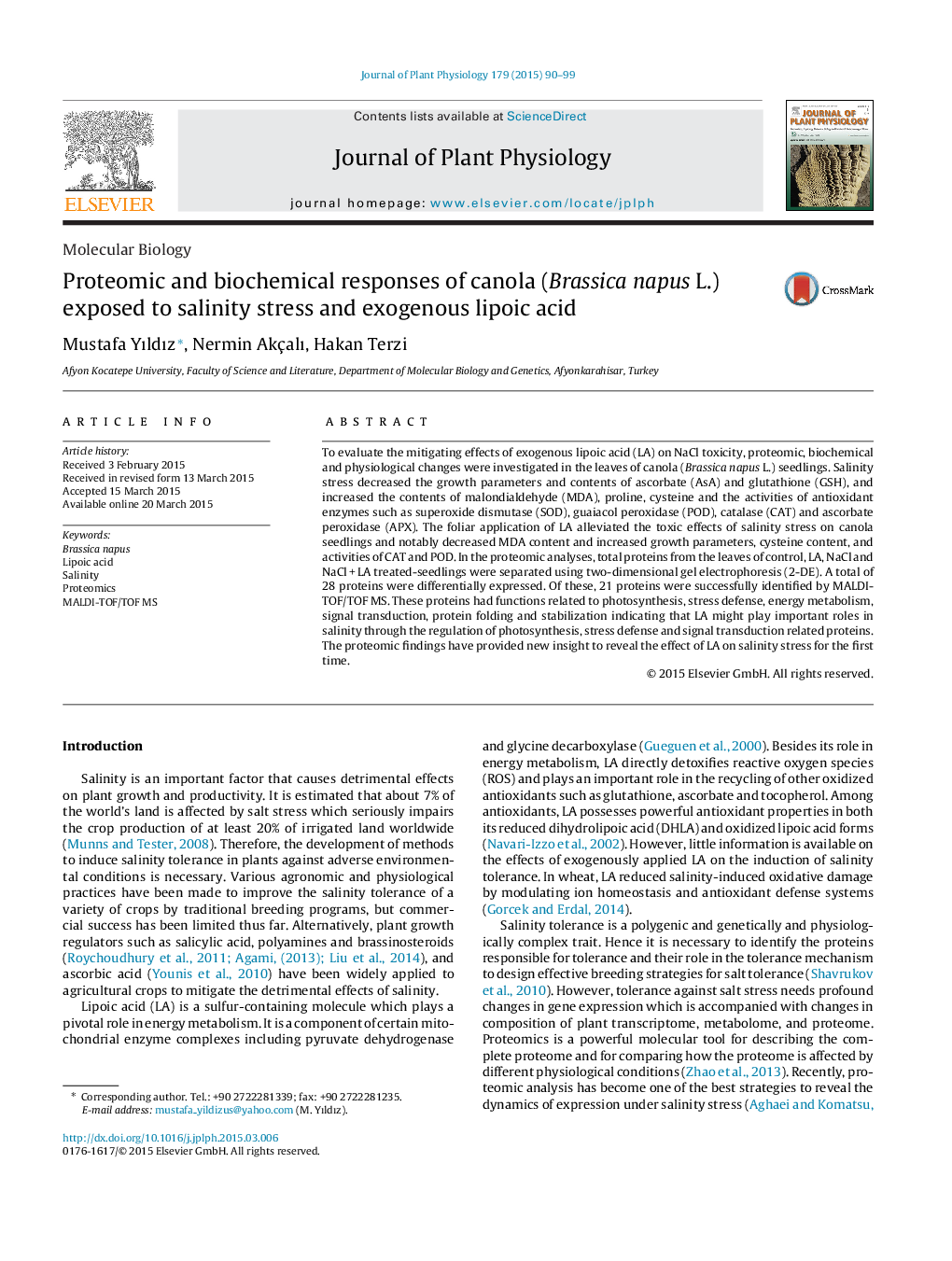| Article ID | Journal | Published Year | Pages | File Type |
|---|---|---|---|---|
| 2055622 | Journal of Plant Physiology | 2015 | 10 Pages |
To evaluate the mitigating effects of exogenous lipoic acid (LA) on NaCl toxicity, proteomic, biochemical and physiological changes were investigated in the leaves of canola (Brassica napus L.) seedlings. Salinity stress decreased the growth parameters and contents of ascorbate (AsA) and glutathione (GSH), and increased the contents of malondialdehyde (MDA), proline, cysteine and the activities of antioxidant enzymes such as superoxide dismutase (SOD), guaiacol peroxidase (POD), catalase (CAT) and ascorbate peroxidase (APX). The foliar application of LA alleviated the toxic effects of salinity stress on canola seedlings and notably decreased MDA content and increased growth parameters, cysteine content, and activities of CAT and POD. In the proteomic analyses, total proteins from the leaves of control, LA, NaCl and NaCl + LA treated-seedlings were separated using two-dimensional gel electrophoresis (2-DE). A total of 28 proteins were differentially expressed. Of these, 21 proteins were successfully identified by MALDI-TOF/TOF MS. These proteins had functions related to photosynthesis, stress defense, energy metabolism, signal transduction, protein folding and stabilization indicating that LA might play important roles in salinity through the regulation of photosynthesis, stress defense and signal transduction related proteins. The proteomic findings have provided new insight to reveal the effect of LA on salinity stress for the first time.
